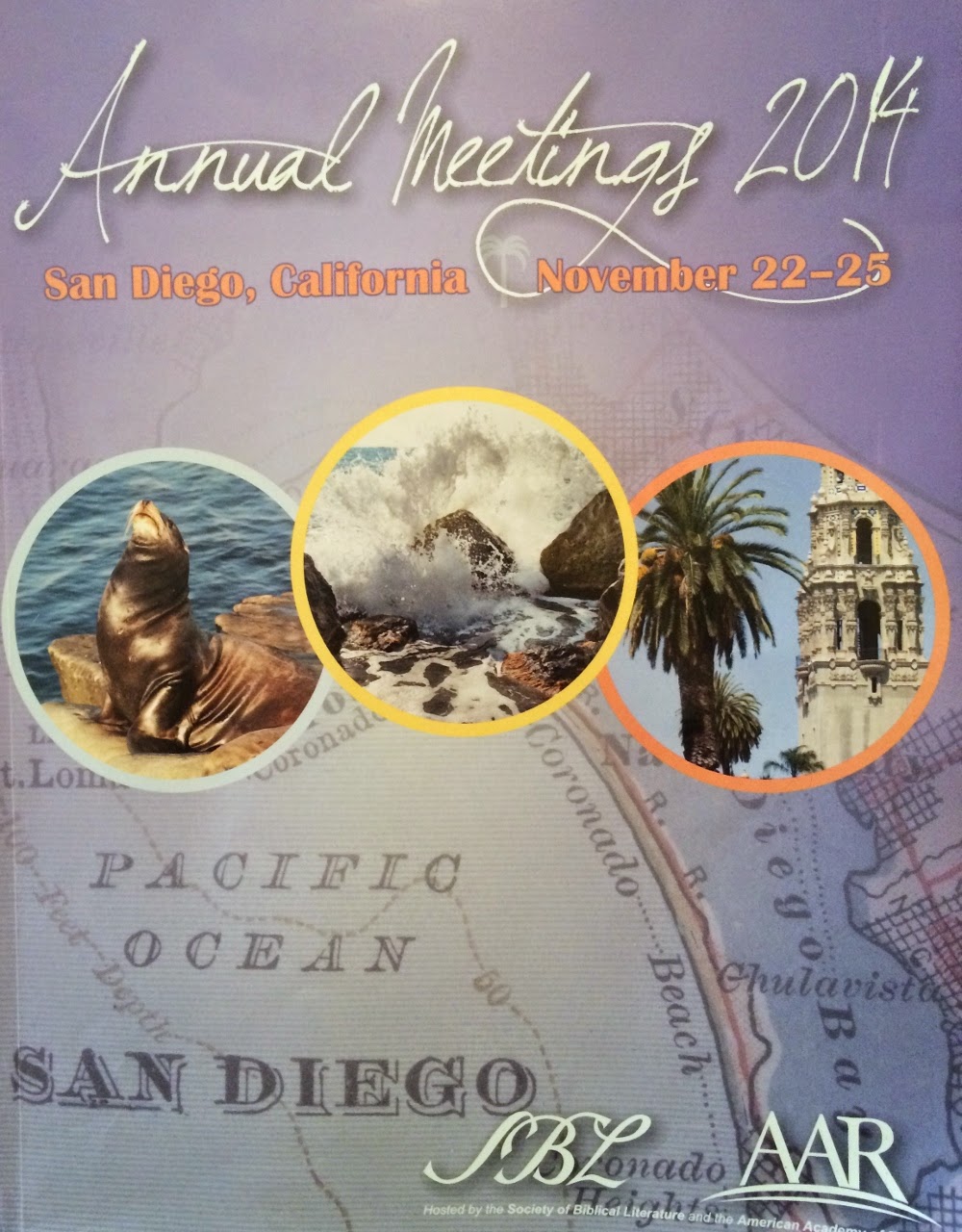I'll post separately on the Festschrift for Klyne and on some of the sessions which I thought were particularly helpful for the study of Paul in his wider Mediterranean context. But as a prelude to the fantastic time I had at SBL, here are some photos of the jogging route I took while I was there. Chris Spinks over at the Wipf & Stock blog Running Heads posted a map of a jogging path as a way to enjoy the boardwalk and ocean air of San Diego. His group was going to start running at 7am on Saturday (11/22) but I needed to meet someone at 8am, so I followed his suggested route at 6am. It was glorious! I made it a prayer run and it really fed my soul. Here are some pics below and I'll follow up with a succession of posts on my time at SBL in the days ahead.
 |
| Photo of the Sun Rising on the San Diego Boardwalk |
I made it passed the pier, the Midway aircraft carrier, and the "pirate" ship before having to head back to catch my 8am meeting. About 4 miles round trip. Perfect!


.jpg)
